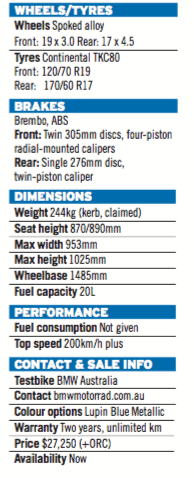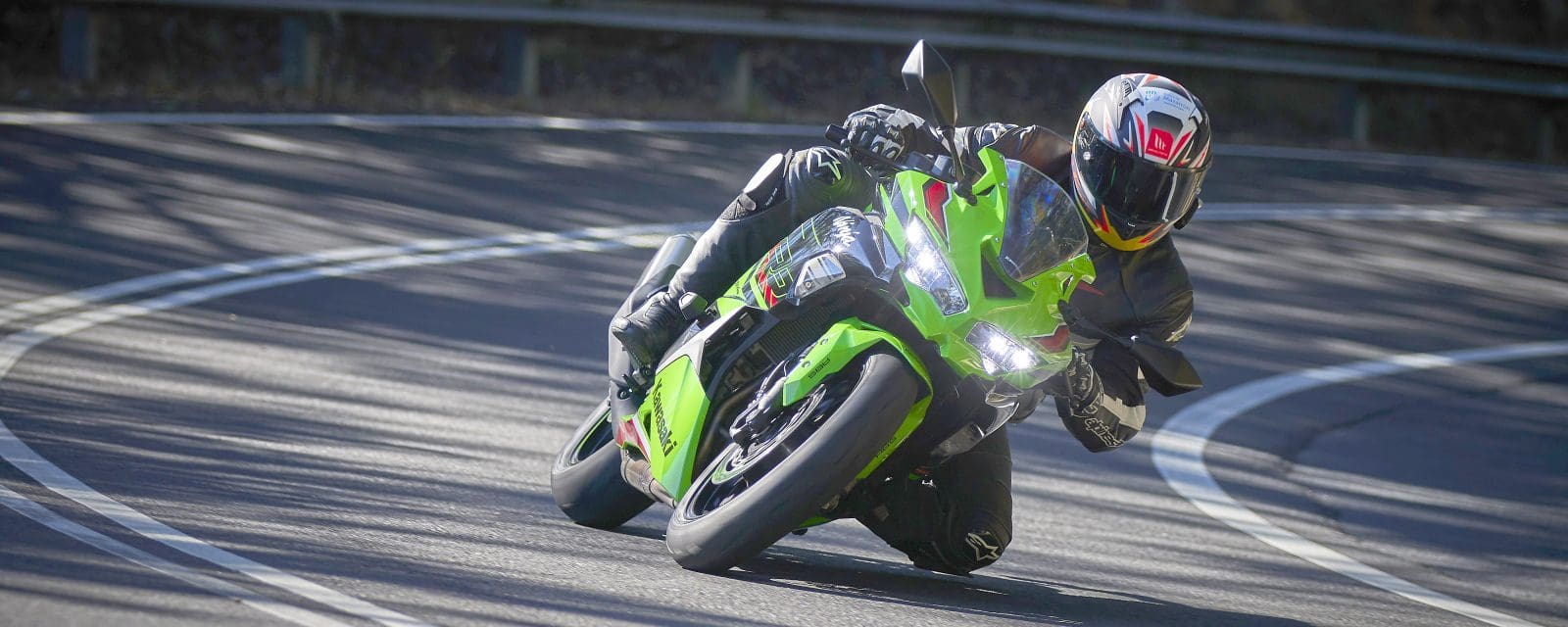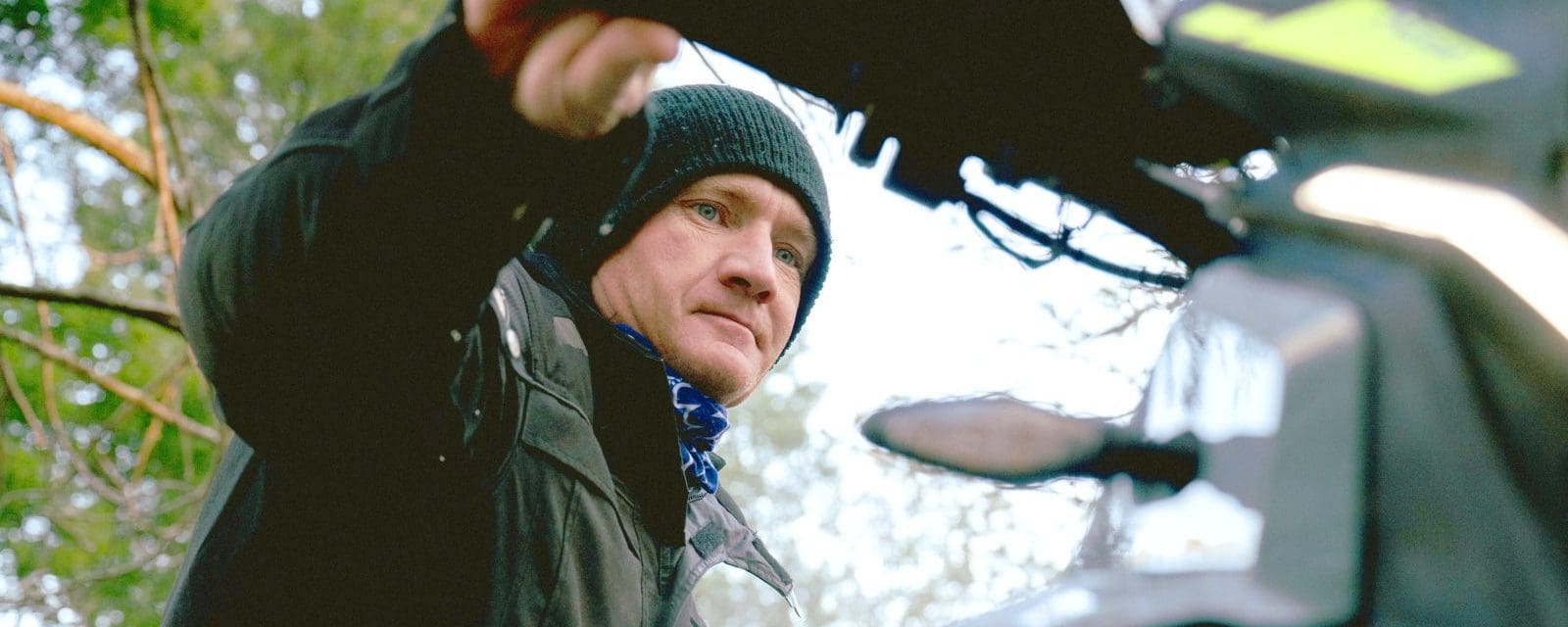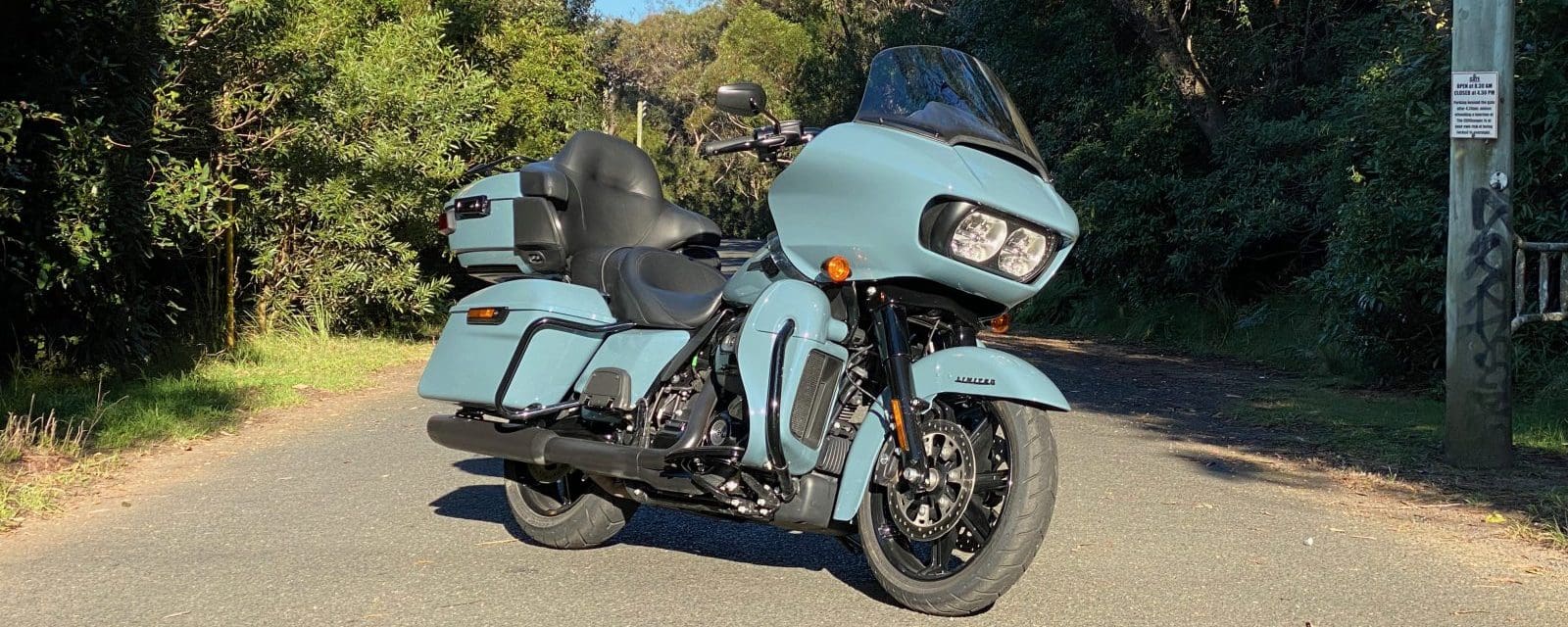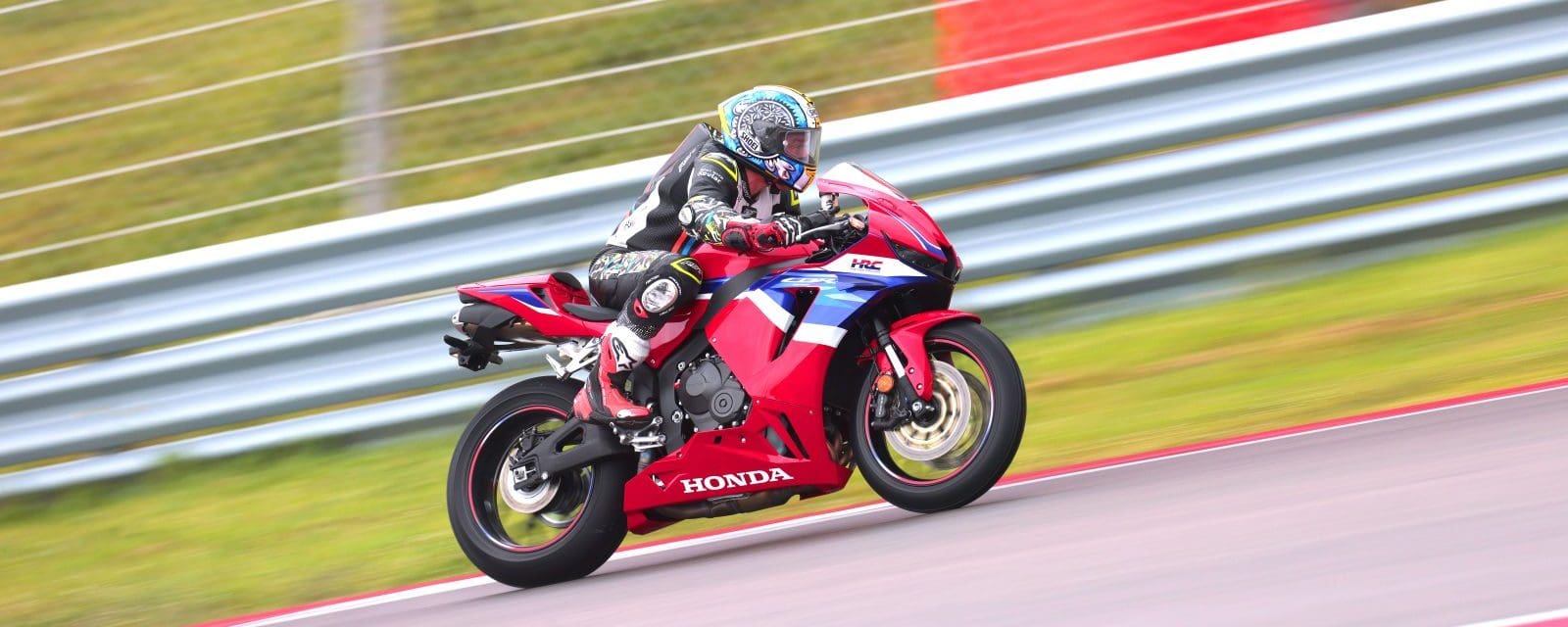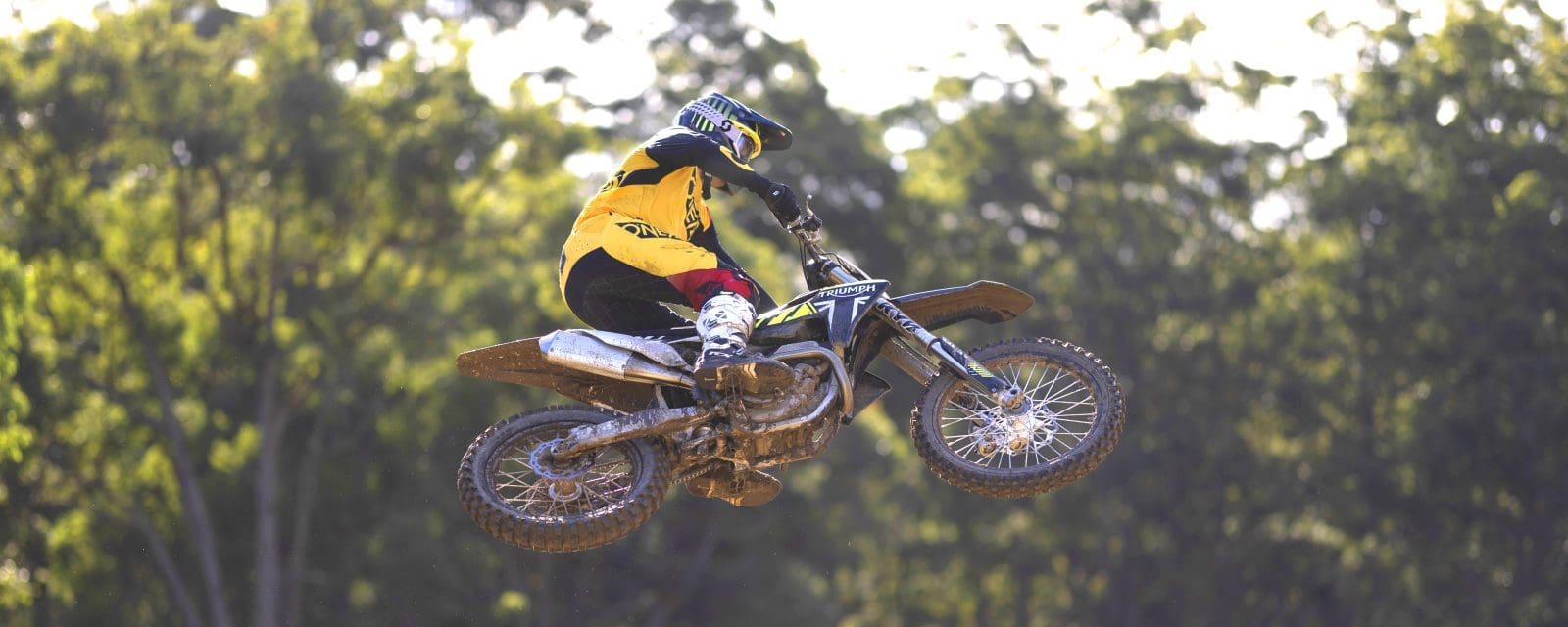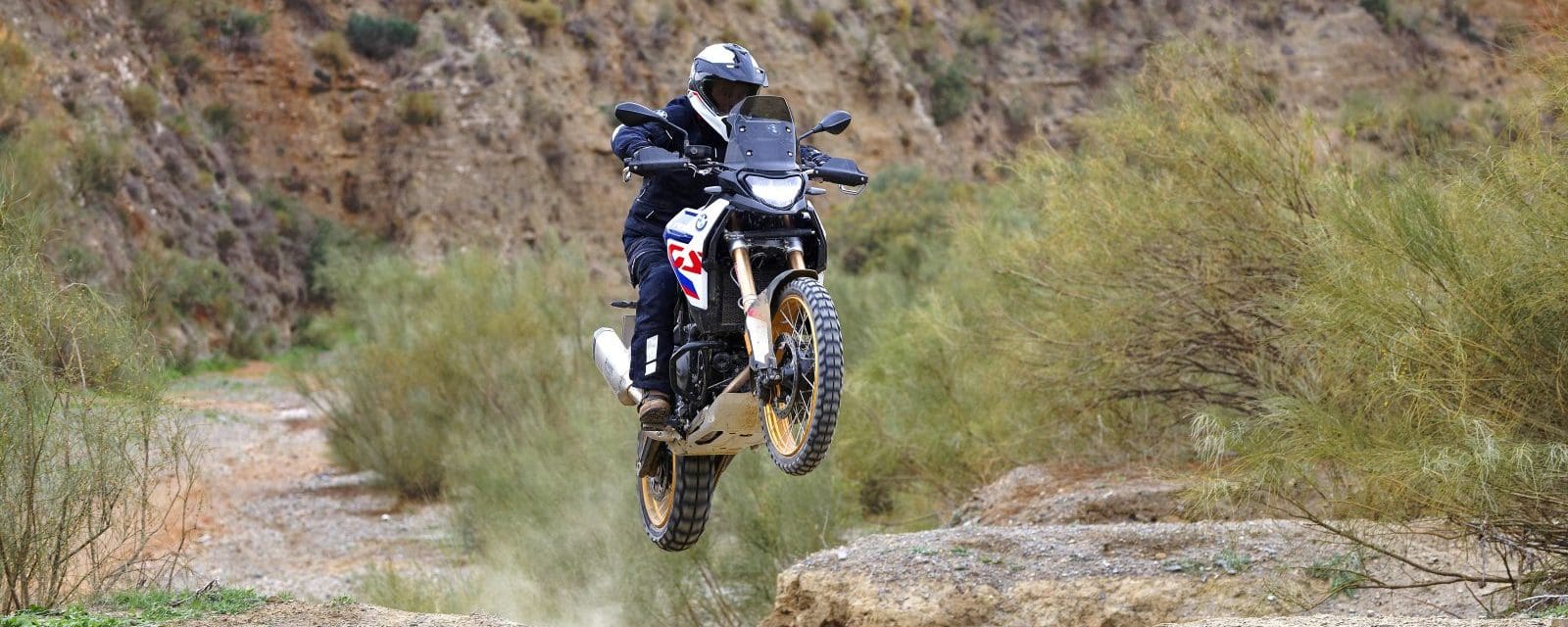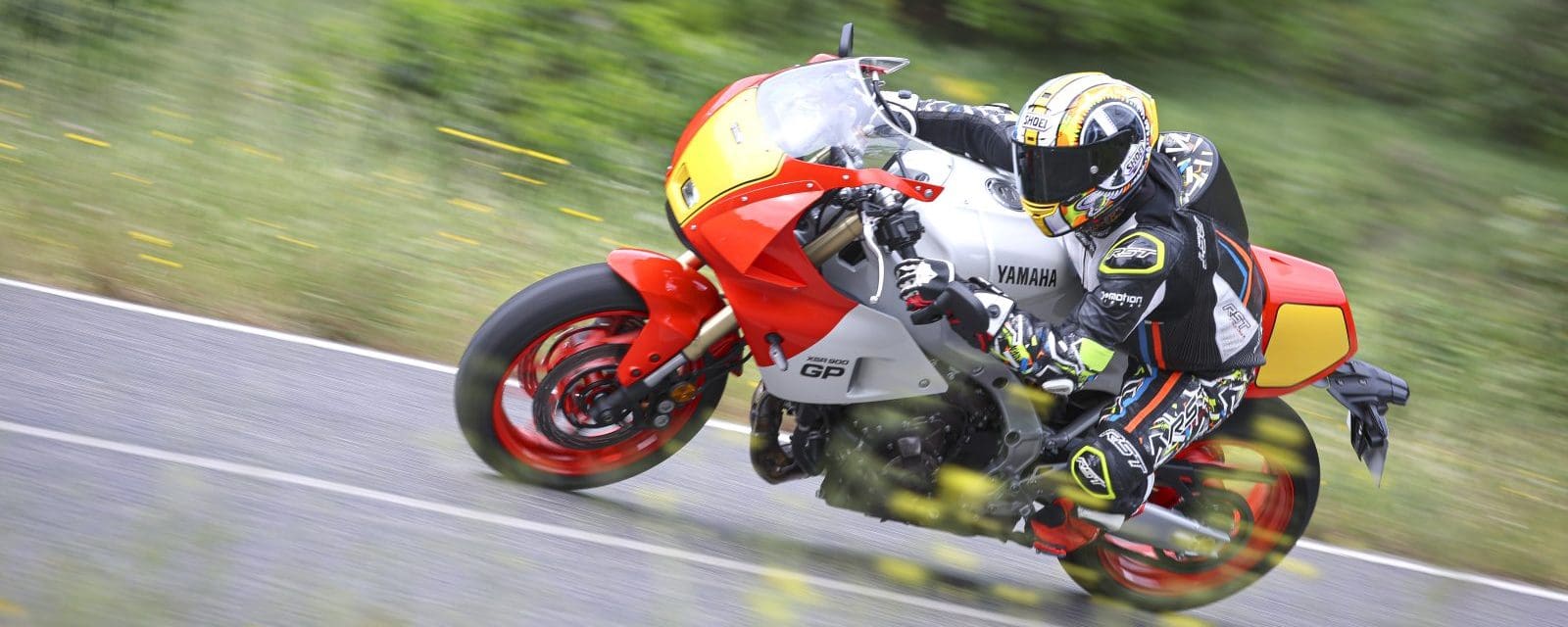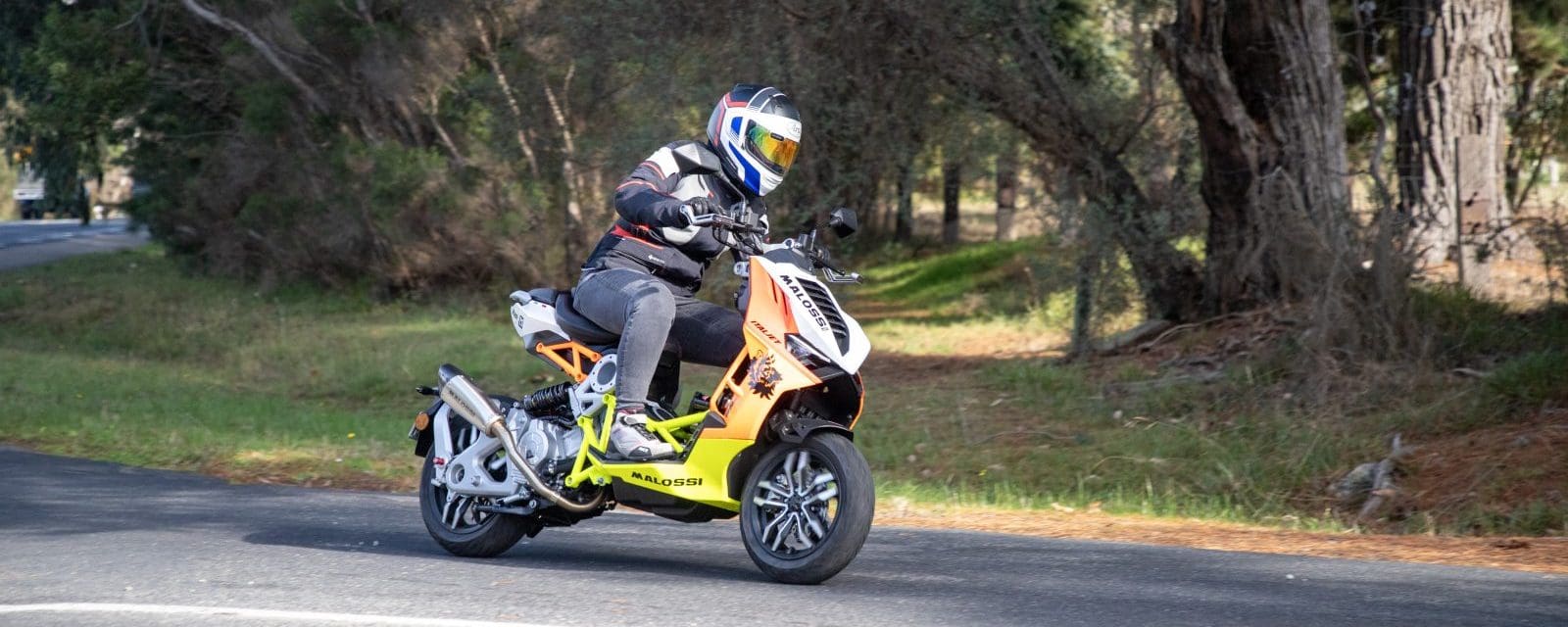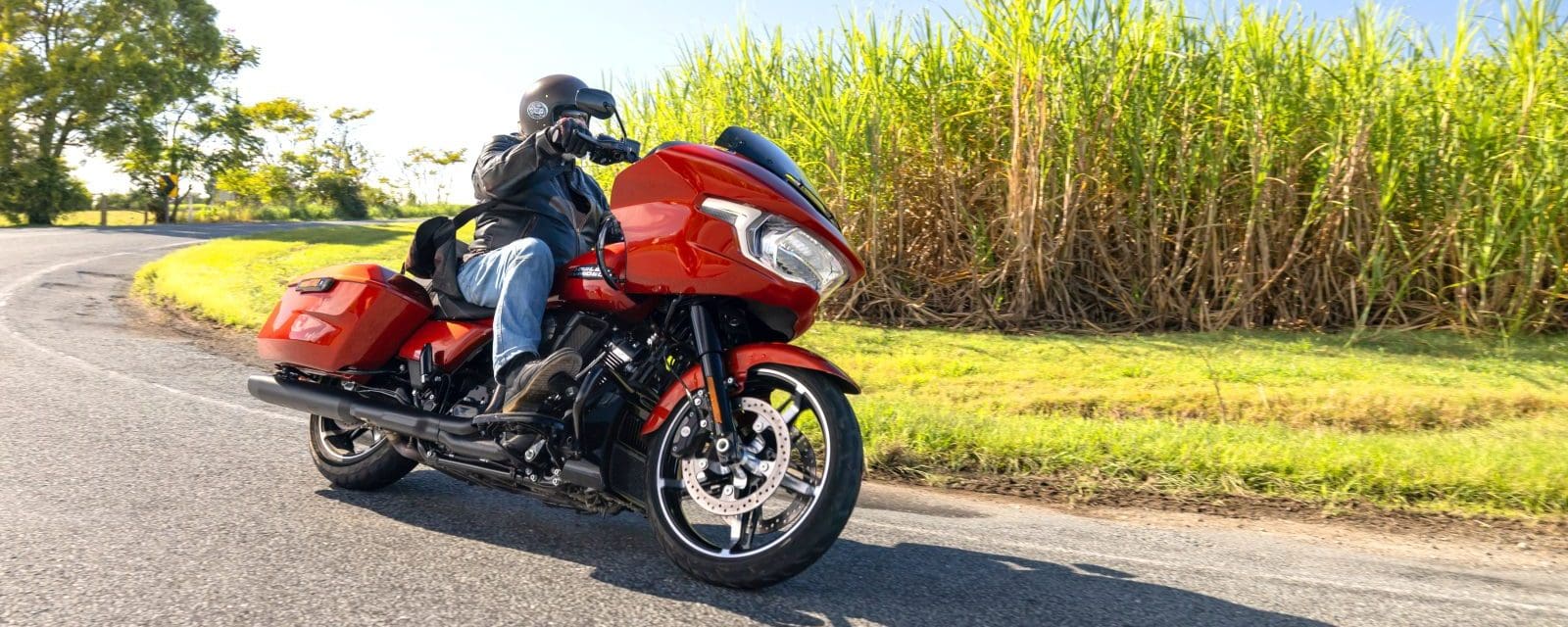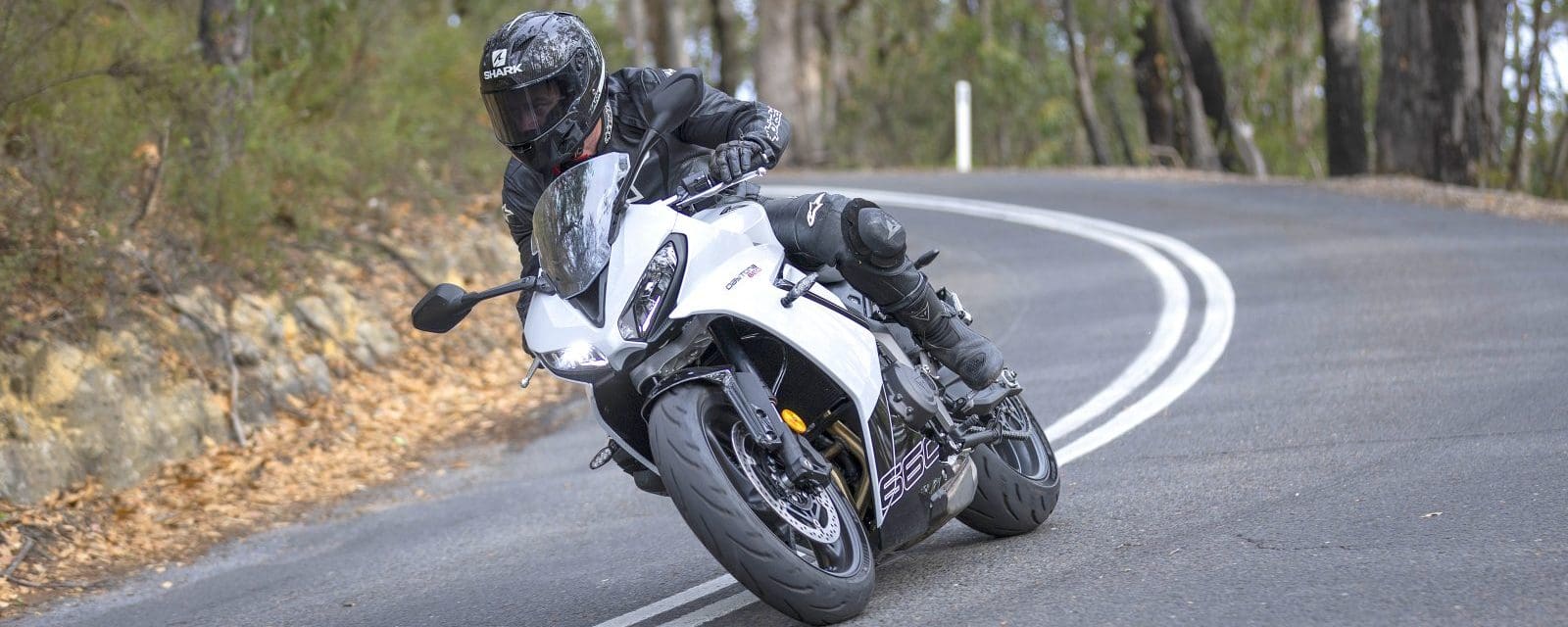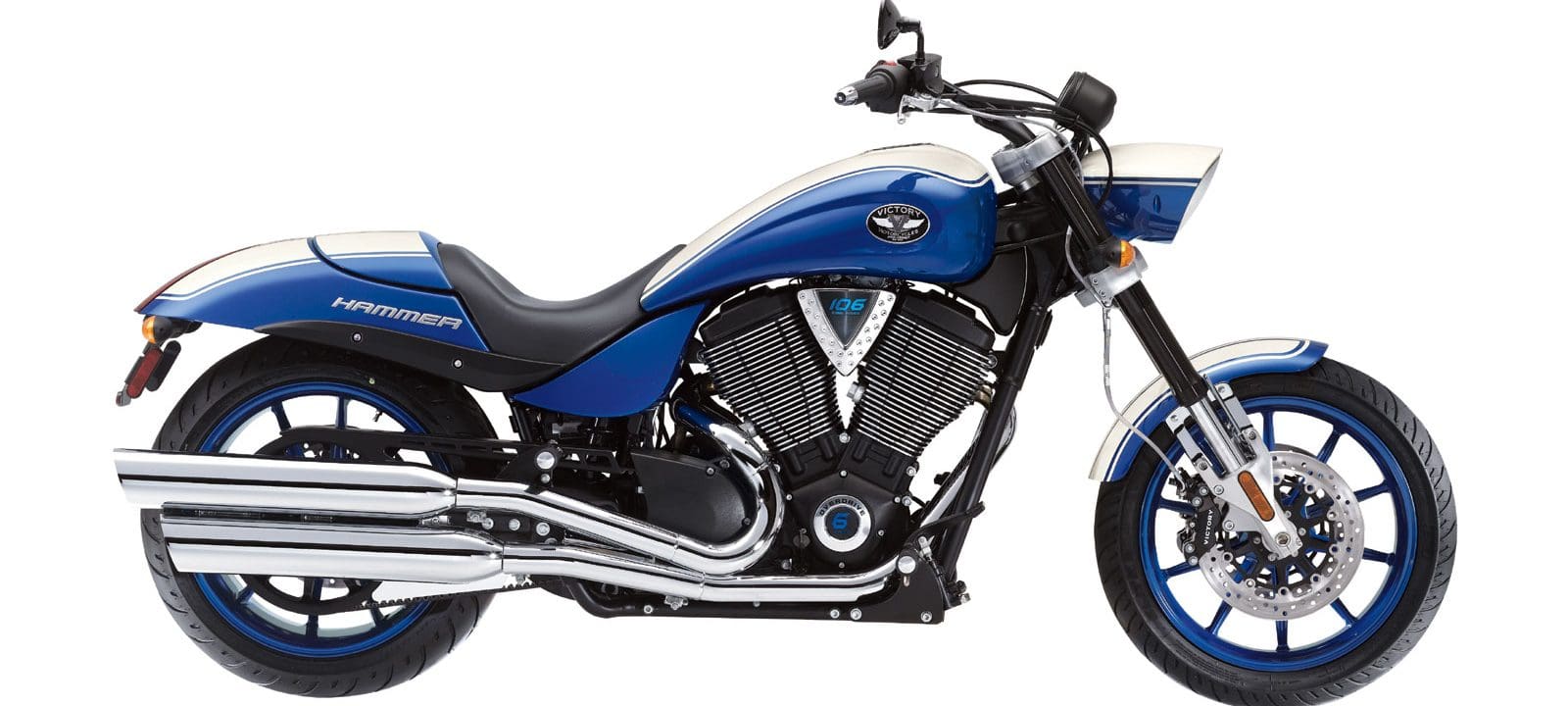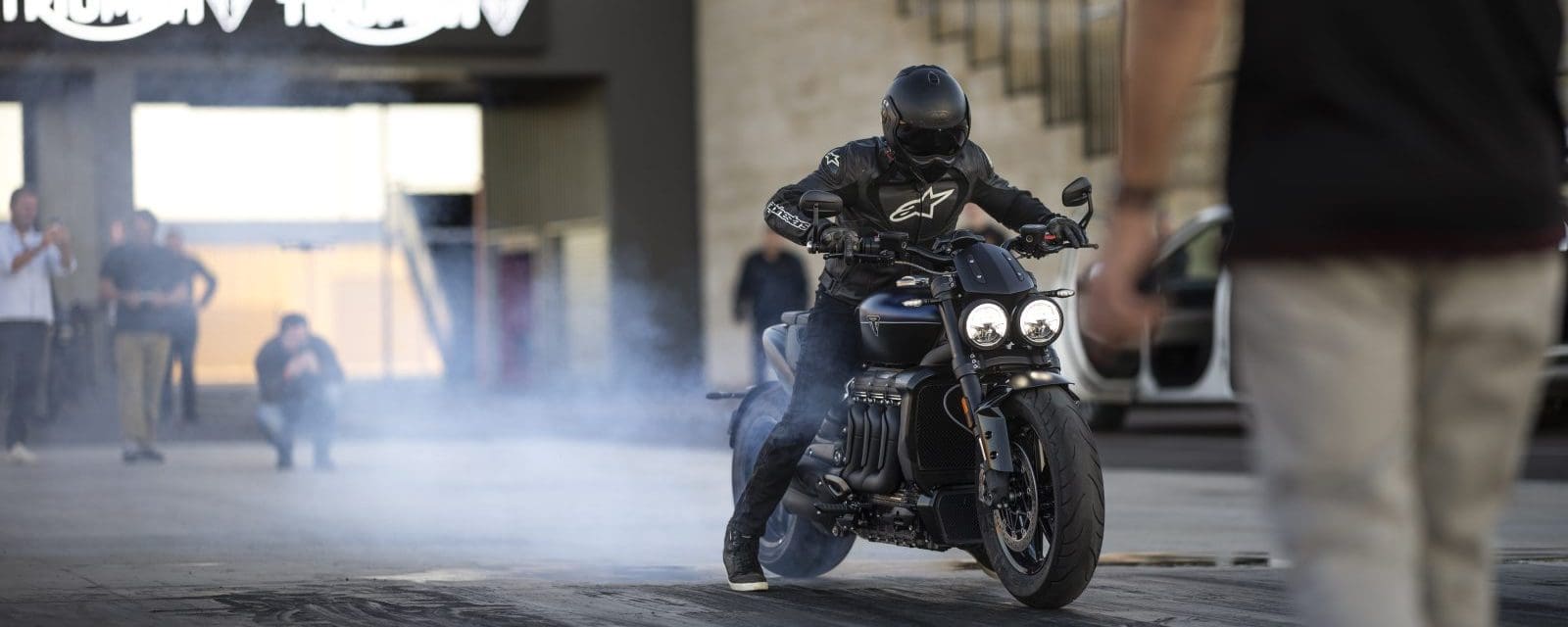BMW 1200GS Rallye X – Off course you’re familiar with the BMW GS – unless you’ve been living in a cave for the past 30 years, and even then there’s a pretty good chance that you will have seen one go by. Since the model family appeared in the early 80s it has redefined the genre of adventure bikes, and gone from strength to strength. Over that time, BMW has continued to refine and re-define the range to the current spec of bikes we have grown to love. Even now, when many of us thought it would be impossible to improve the current machine, BMW has taken the GS Adventure platform with its longer suspension, trimmed it down to GS proportions, and given it a new name: the Rallye X.
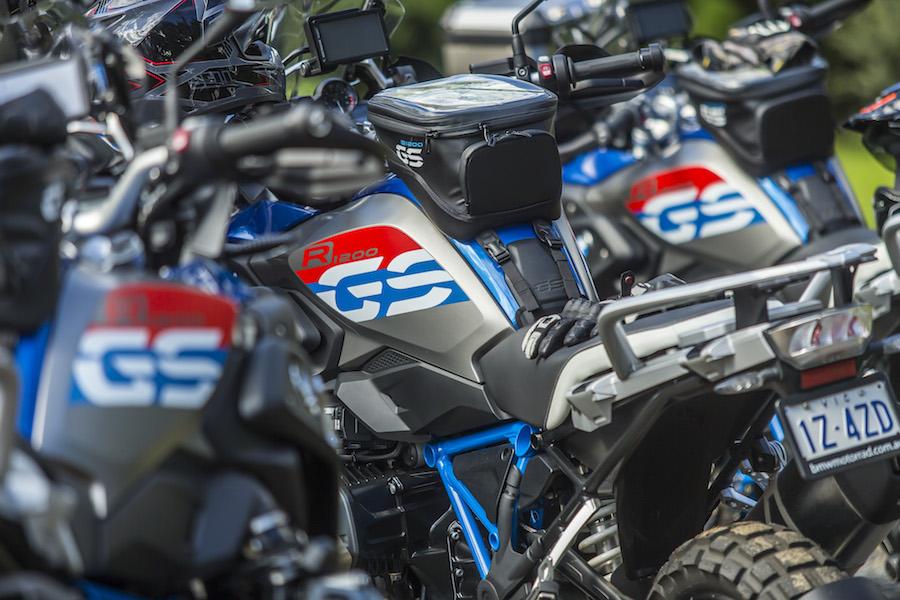
This bike excels on the road, just as the GS models always have, but when it comes time to hit the trails, it’s more adept than any GS before it. The launch test was organised in the Victorian High Country, and it turned out to be the perfect location to show off the skills of the new Rallye X, with plenty of varying conditions to contend with: greasy climbs that can be challenging to any rider, descents that should be tackled with a parachute, and even some plain old highway miles. It was a good representation of our land Down Under, and this Bavarian brumby revelled in it – no surprise seeing as the bike was partly inspired by Australia.
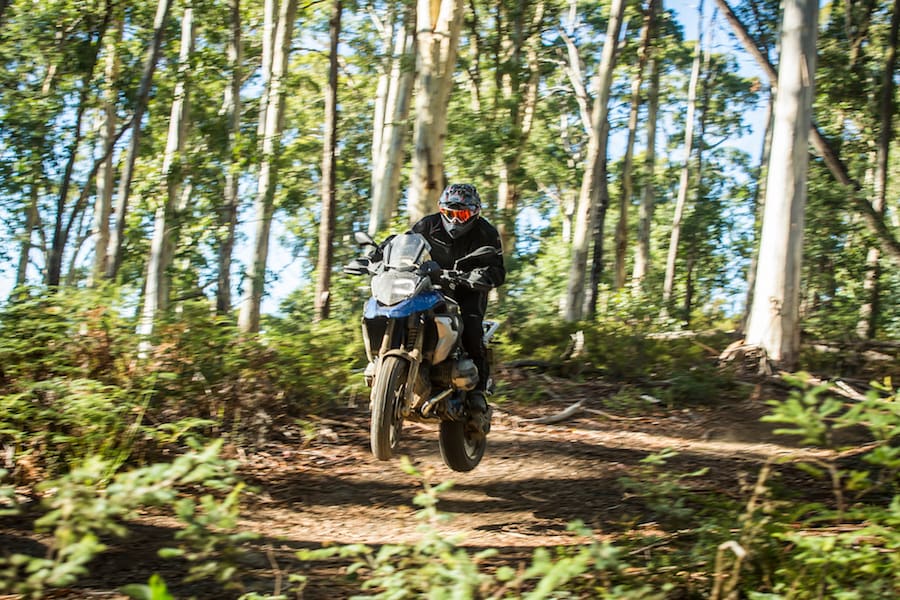
The Rallye X is special, and it’s not just because of that new eye-catching paint job and striking stance. A raft of parts has been added to the already very good GS Adventure platform – there’s a longer sidestand, enduro-style ’pegs, updated Electronic Suspension Adjustment damping, frame guards, spoked wheels, sharper handling and uprated electronics. Weight has been reduced by ditching the centrestand, which also makes the ride a lot quieter on rough unsealed roads.
The X comes standard with a small screen and although it still offers decent protection it’s nothing like the bus-sized shield fitted to the GS Adventure. The reasoning for the small screen is simple: standing on the ’pegs over the rough stuff with the small screen fitted lets you to move your weight further forward without banging your head, making the bike a little more off-road orientated. You can always personalise the screen at time of purchase to whatever best suits you – I’m guessing that not many GS models get sold without all manner of options.
But the biggest difference between this machine and its siblings is the extra-long travel suspension. The Rallye X sits higher in standard configuration than the GS, standard Rallye, and Tour, and with that height comes massive benefits when the blacktop ends. Serious off-road users of the GS in the past have been nobbled with a lack of travel and bottoming absorption, but with 210mm of travel up front and 220mm at the back, the Rallye X can go places and do things that the standard bikes could only dream about. We had a standard GS along with us for the ride and the differences were very apparent when riding it back to back with the new X.
Spring preload can also be adjusted via the switchblock to give three possible options (Minimum, Automatic or Maximum), allowing you to choose the right set-up for each situation. I found the preload programing to be very good, with each setting giving an advantage under different conditions.
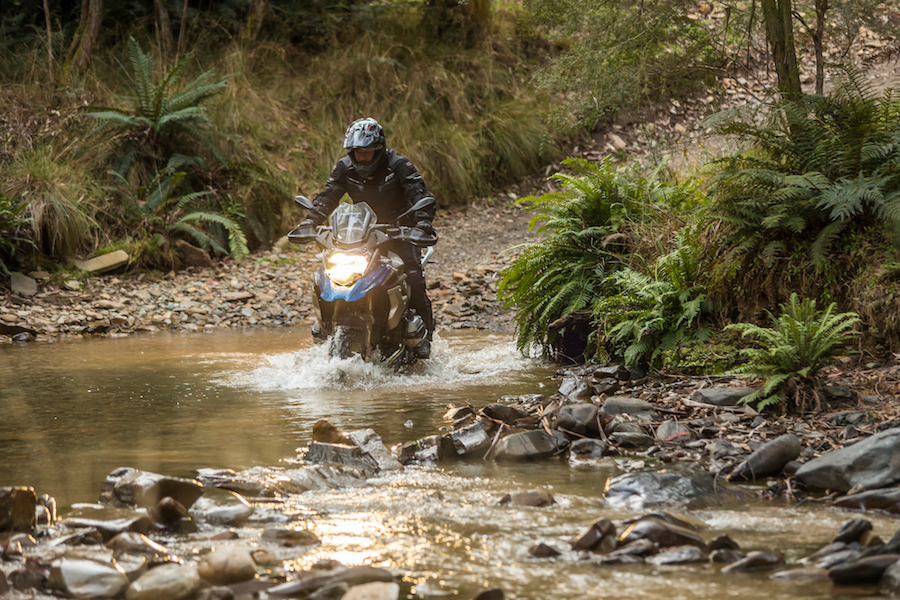
For example, climbing the slippery slopes on the German Spur track near Gaffneys Creek, the minimum preload setting gave me plenty of grip, especially if I let that boxer twin work in the bottom of its rev range. I used the Dynamic setting when I was after a comfortable cruise as it automatically detects the rider weight and sets a predetermined normal sag, keeping the Rallye X in the ballpark no matter how much gear or weight you are carrying.
High-speed bumpy fire trails are where this bike really shines. Its extra nimbleness over the GS Adventure and longer travel compared to the GS combine to leave those bikes in its wake. With the rear switched to maximum preload for the rough stuff I was genuinely surprised by the off-road handling capability provided. It’s about 20-25 per cent better than the other GS models in absorbing bumps and jumps, and keeping itself in line.
Normally every time you give something in one area there is a take in others, but that’s just not the case with this bike.
Hitting the bitumen and winding the settings to Dynamic saw the Rallye X turn from a dirt king into almost a sportsbike at the flick of a switch. It’s amazing the amount of grip the TKC 80 Continentals provide on the bitumen for a knobby. We were on some of the best roads in Australia, particularly the Eildon-Jamieson road, which twists itself inside out for an eternity. The addition of a lean-angle-activated traction control system for the first time on the GS range added another aspect of safety, but more importantly it added feel of what the tyres were doing. By the time we had reached the other end of that road there were plenty of black lines showing our joyful path.
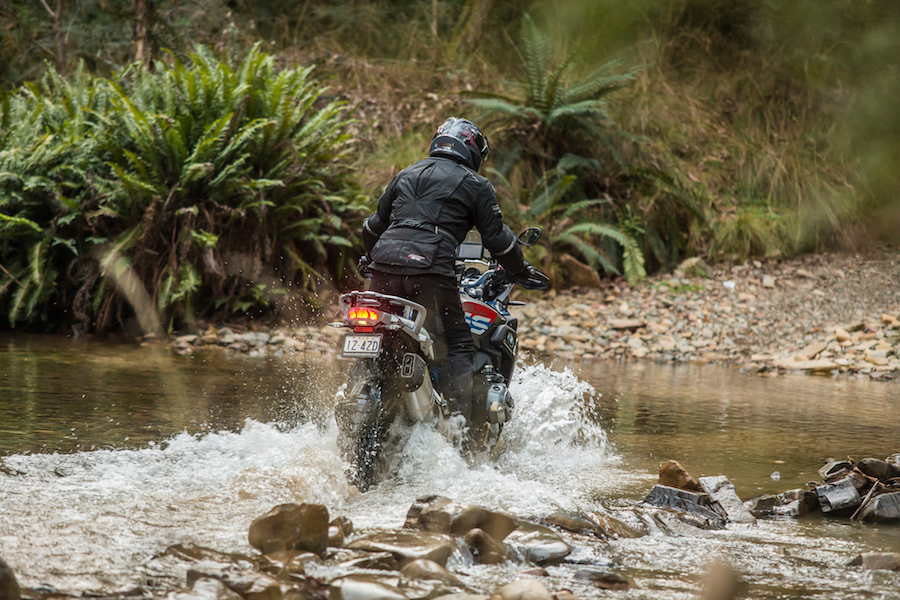
Although the Rallye X weighs in at close to quarter of a tonne fully fuelled and ready to ride, it’s amazingly well balanced. At walking pace the weight disappears, making it very easy to manoeuvre in town or when the going gets rough. The lack of front fork dive is noticeable on the Telelever front end, but normal handling characteristics still apply, letting you get on with the job of riding. The chassis reacts very well to rider inputs and changes of weight distribution, improving the off-road handling of this machine no end.
The big heart of this beast is the latest incarnation of the boxer twin and it’s one of my favourite features of the bike. BMW introduced the new downdraught 1170cc air/liquid cooled engine in 2013, following on from the old air-cooled design that could trace its roots back to BMW’s boxer beginnings.
The new flat twin is a torque monster. It creates 125Nm at 6500rpm, making the Rallye X very tractable. The workable rev range starts from as low as 1500rpm when lugging up a hill, and there’s a sense of confidence that it will keep on keeping on when it counts. At one point when we were having a bit of a play on the side of the road in the Yarra Ranges, I put the big girl in fourth gear on a flat piece of track, took my hand from the throttle and just let it chug along at idle, but it still wouldn’t stall. In fact, during my two days on board the Rallye X I didn’t stall it once, even in some pretty tough conditions, and that’s good enough for me to give the latest powerplant a big tick. And rumour has it there is still plenty of scope to improve performance in the future with reports of 120kW being reliably attained in testing with the latest design.
One aspect that has been updated on the Rallye X and refined even further is the electronics package. BMW has been working at the forefront of improving rider safety and riding aids with the use of electrickery since it introduced the first motorcycle ABS system to the market in 1988. Things have progressed a long way since then, and the GS is now one of the most electronically advanced models in the adventure bike segment.
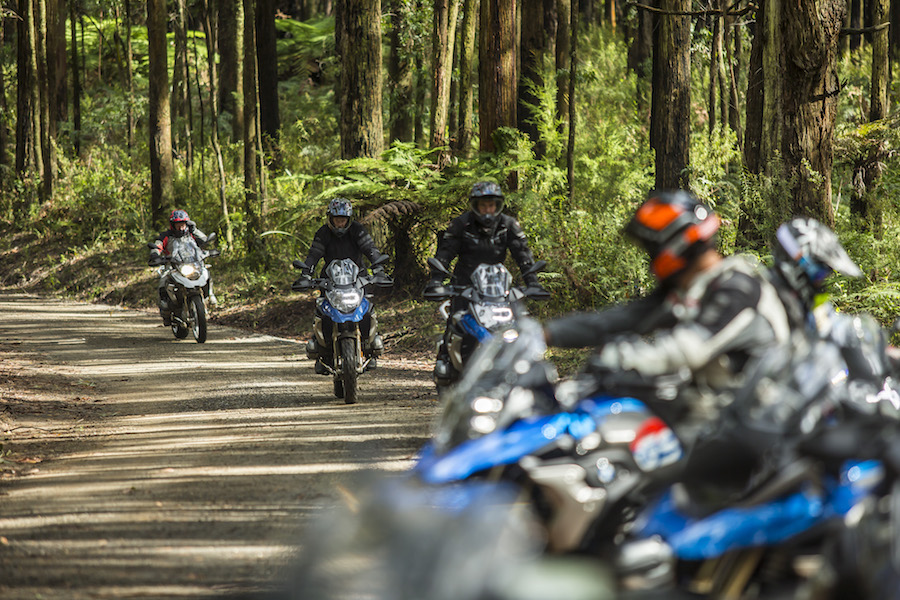
The Rallye X is optioned up like the GS Adventure, coming with four rider modes, switchable traction control, cruise control and a nifty electronic shift-cut system that that allows you to shift up or down gears without using the clutch. I could write a whole story on the electronics alone, but basically there are four riding modes (Rain, Road, Dynamic and Enduro) that adjust the throttle response as well as ABS, traction control and the ESA suspension. Three of the riding modes are self-explanatory and work in their selected environment perfectly. Dynamic is a little bit special, however, as it continually takes in rider inputs and alters the settings in a semi-active fashion, keeping the bike in the right attitude depending on the way it’s ridden. BMW has used the system for a while and it works brilliantly.
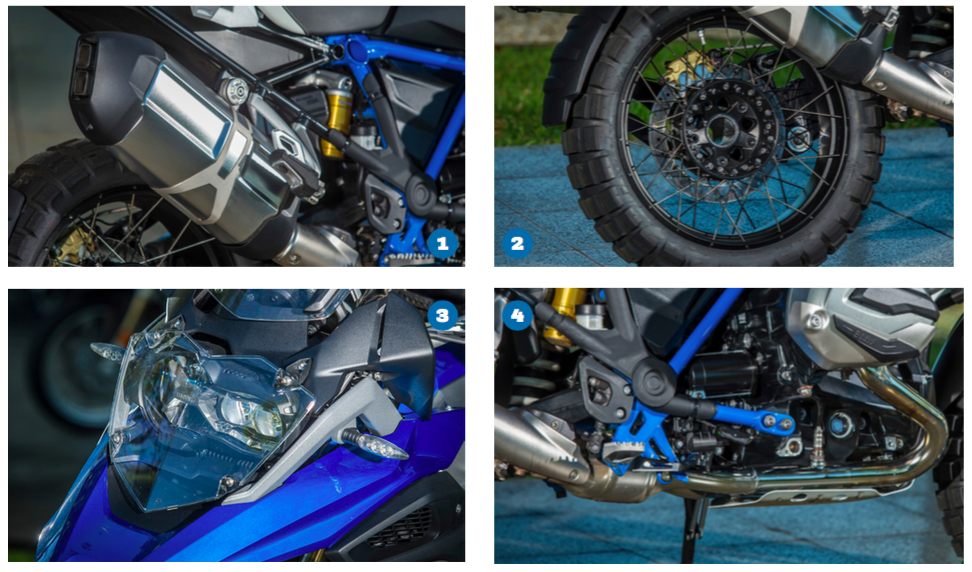
2. BMW’s spoked wheel design allows for fitment of tubeless tyres
3. Headlight protector is an optional extra
4. Another optional extra is a flip-down rear brake lever for ease of use while standing on the ’pegs
If four maps aren’t enough, the Rallye X comes with an encoding plug which allows you to access Dynamic Pro and Enduro Pro mode. These two maps are for the racier among us and are set up for a more competition-oriented state. With all these options – and the ability to create your own configurations – I think the system is something you’ll never get bored with.
If there is a downside to the GS it must be the complexity of the electronic system. Although everything works perfectly in the standard four modes, if you’re the type of person who wants to personalise the settings it’s quite a job. Of course, over time most owners will learn how it’s done, which should negate the issue.
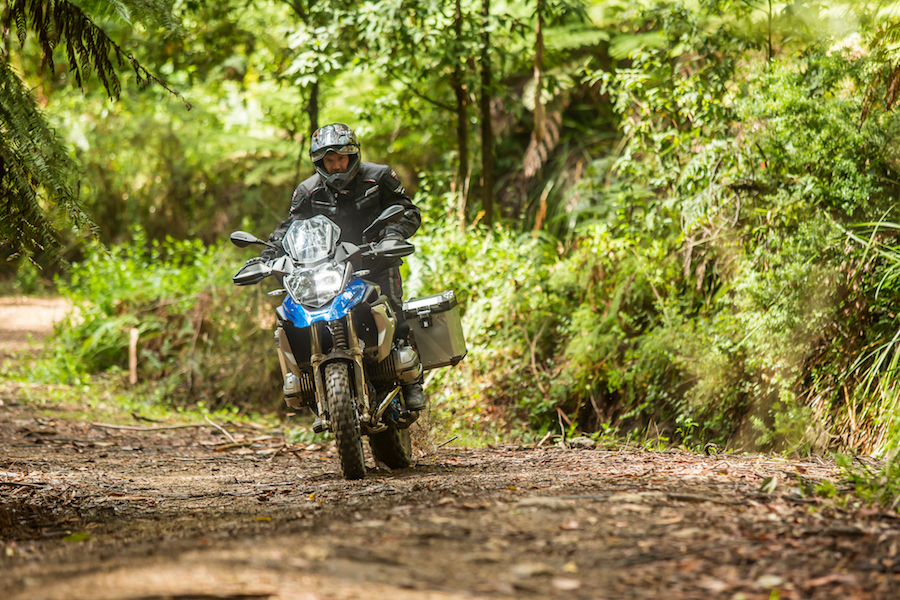
Having spent two days fanging around the Victorian high country and testing this beast to its limit, I think BMW is onto a good thing. The Rallye X sets a new standard for the already potent GS range. If it’s fun you want, on or off road, this bike can do both in the same day. Not too many other machines on the market can match its diverse capabilities, and although at $27,250 (+ ORC) its up there in price, you are getting a lot of motorcycle for your buck.
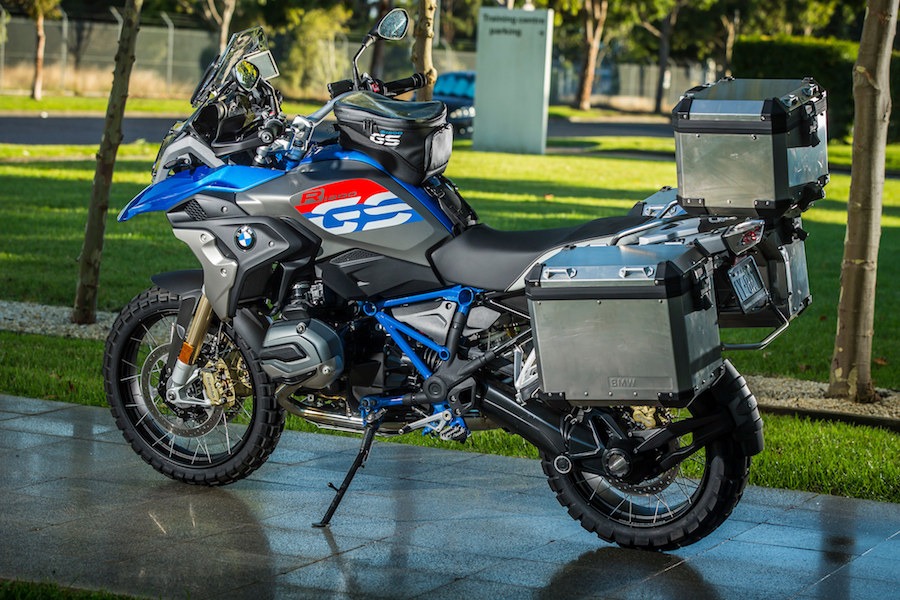
TEST Steve Martin
PHOTOGRAPHY IKAPTURE
